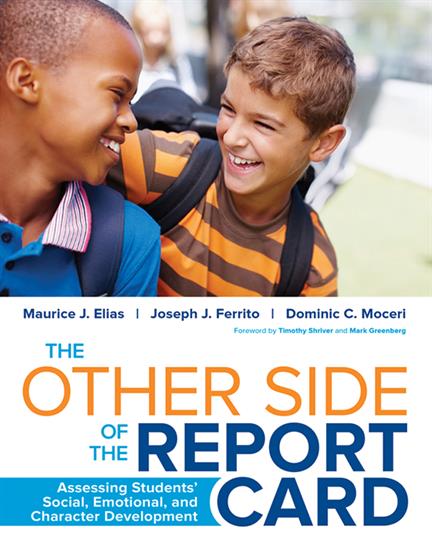Hands-on, Practical Guidance for Educators
From math,
literacy, equity, multilingual learners, and SEL, to assessment, school counseling,
and education leadership, our books are research-based and authored by experts
on topics most relevant to what educators are facing today.

The Other Side of the Report Card
Assessing Students' Social, Emotional, and Character Development
Foreword by Timothy Shriver and Mark Greenberg
Integrate social-emotional learning and character development into your grading system with guided exercises for analyzing existing report cards, suggested new designs, case studies, and testimonials.
Product Details
- Grade Level: PreK-12
- ISBN: 9781483386676
- Published By: Corwin
- Year: 2015
- Page Count: 112
- Publication date: December 29, 2015
Review Copies
Review copies may be requested by individuals planning to purchase 10 or more copies for a team or considering a book for adoption in a higher ed course. To request a review copy, contact sales@corwin.com.



